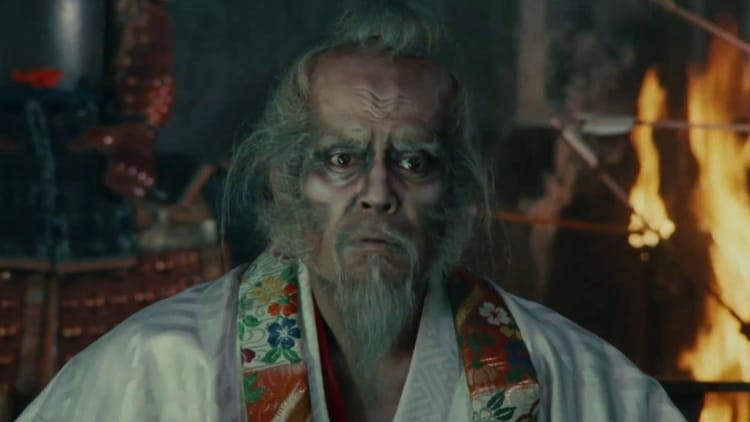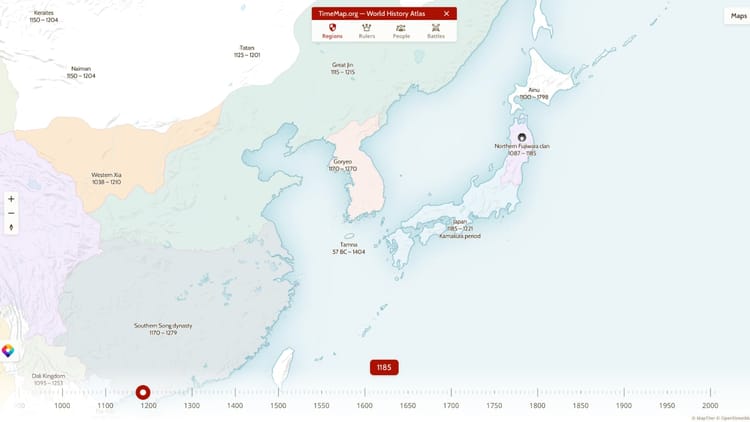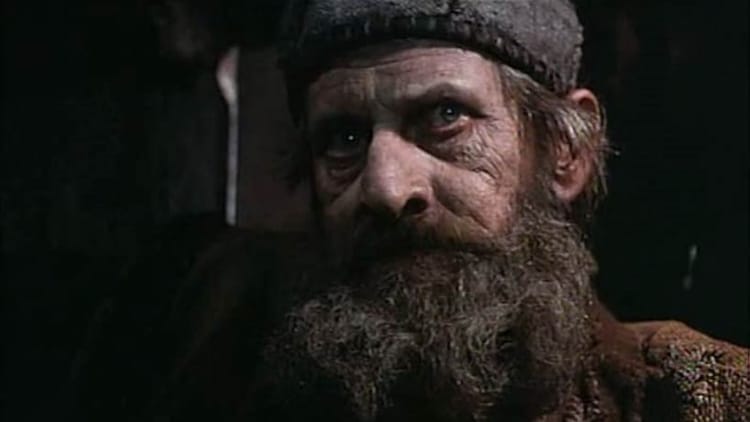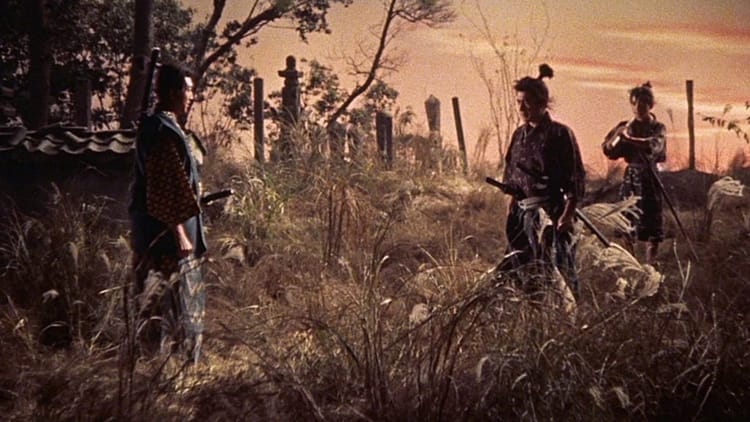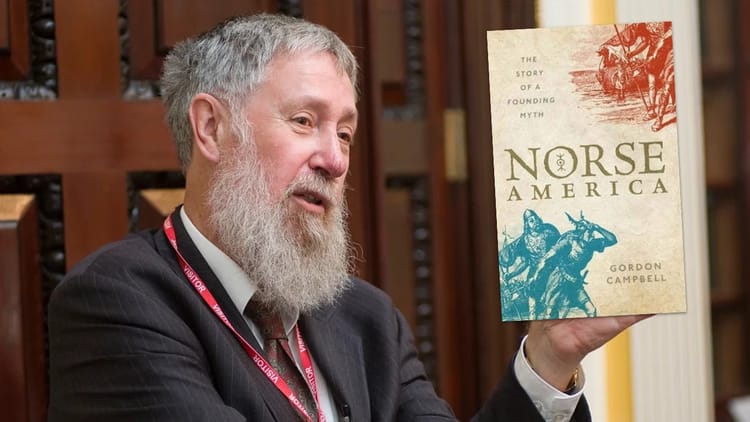Tragedy, the Greeks, and Us
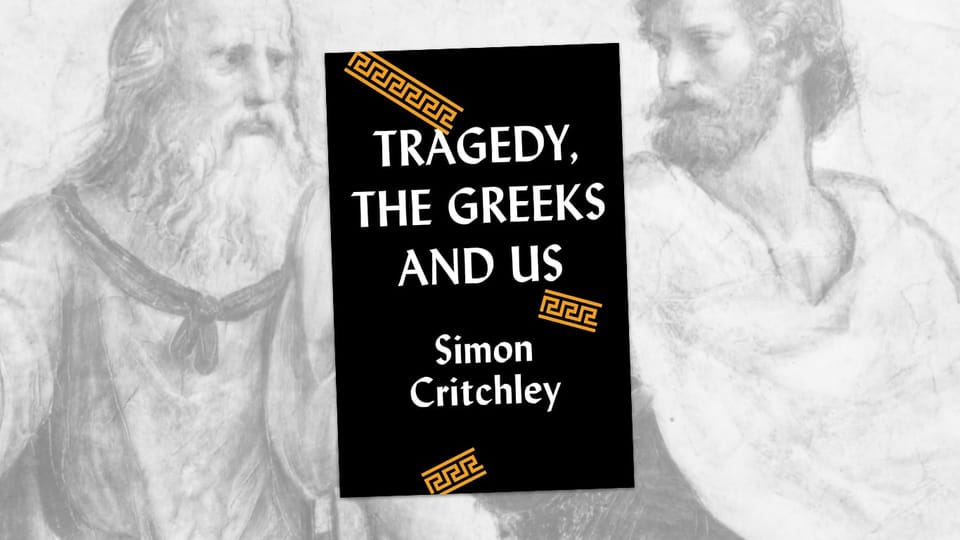
The past few years, I’ve been knee-deep in Viking and samurai history. Why? Because VIKINGS vs SAMURAI is such a bonkers concept, it practically demands some historical heft to sell the illusion. Sure, the premise is ridiculous, but if I can ground it in enough historical detail to make you believe, even for a moment, that it’s legit? Boom, mission accomplished. That said, research can be a black hole. At some point, I had to say, “Enough’s enough,” or risk losing my mind.
Now, don’t get me wrong, I’m still soaking up Viking and samurai lore like a sponge. My “to-read” pile could take out a small army, but I’m shifting gears. I was burning out, and it’s time to explore new terrain. Which brings me to Simon Critchley’s Tragedy, the Greeks, and Us. This book? It’s a deep dive into Greek tragedy and how it reflects the human condition—bold, messy, and completely unresolvable.
I’m not sure how I came across Critchley’s book, but I remember reading an excerpt where he wrote, “The ancients need our blood to revive and live among us. By definition, such an act of donation constructs the ancients in our image. In seeing them, we see ourselves turned around, in a new light, under a new aspect.” That hit me like Zeus chucking a lightning bolt, bam! I had to read it.
Critchley lays it out: tragedy’s all about action, not abstraction. It’s “thinking in action,” as he puts it, wrestling with questions like, “What do I do? How do I act?” Tragedy doesn’t hand out tidy solutions. It throws you into the storm of moral ambiguity, limited agency, and existential dread—and dares you to deal with it.
Critchley’s got hot takes on Plato and Aristotle. He calls out Plato for being uptight and sanctimonious, scared of tragedy’s raw power to disrupt order. But he’s fair—Plato had a point. Tragedy can shake people up in ways that don’t fit a controlled society. On the other hand, Aristotle gets props for digging into the psychological depth of characters like Oedipus, though even he sidesteps tragedy’s collective chaos.
The Greeks weren’t messing around with this stuff. Their tragedies weren’t just plays, they were cultural bombs detonating at public festivals like the Great Dionysia. No wonder Plato hated them. For him, tragedy’s chaos was a threat to his dream of a rational, utopian society. Aristotle? He played it cooler, focusing on tragedy’s catharsis, the emotional purge it brings. But even he couldn’t fully embrace how tragedy shakes things up.
Aristotle’s audience? We’re talking your ancient Greek VIPs—educated, buttoned-up dudes who weren’t rolling into the theater for some deep soul-cleansing or a life-changing therapy session. Nah, they weren’t about that. And forget Nietzsche’s wild mashup of Apollonian order and Dionysian chaos, that whole balancing act of structure versus primal insanity. These guys weren’t sweating that either. For them, theater wasn’t some emotional detox. It was about fine-tuning the moral compass, like calibrating a damn precision instrument.
What can happen in tragedy is that we can give ourselves over to that intensity of life, to the happening of aliveness, and open ourselves to the core. One looks at the core of aliveness and it looks back. Just for a moment.
The real magic wasn’t in bawling your eyes out or flipping tables. It was about hitting the sweet spot. Feeling exactly the right thing, at precisely the right time, toward just the right target, with the right motive, and in the right dose. Pure. Freaking. Control.
Now, let that marinate for a second. Isn’t that basically us, sitting around dissecting the latest blockbuster or prestige TV show? “The pacing was off.” “That character? Total cardboard cutout.” “The ending was so slapped together, like, what was that even?” We’re not just passive viewers; we’re Aristotelian critics, dishing out micro-judgments on emotional resonance and narrative flow.
We want our stories to work. To hang together. To make us feel that good, old-fashioned mix of pity, fear, and just the right pinch of catharsis. We might not know we’re doing it, but when we’re sipping our coffee, talking smack about that Netflix finale that fell flat? Boom. We’re channeling Aristotle, whether we like it or not.
Critchley digs deep into tragedy’s tension, showing how it reveals life’s beautiful, brutal ambiguity. It’s messy, conflicted, and refuses to fit into neat little boxes. That’s what makes it real. And here’s the genius part: tragedy thrives on what Critchley calls “transcendental opacity.” It’s not about solving the puzzle, it’s about staring into the darkness and living with the unknown.
Critchley takes this a step further, arguing that tragedy captures the raw essence of life—ambiguity, chaos, and all. Unlike philosophy, which tries to box everything into neat little categories, tragedy embraces the unknowable. It’s about “transcendental opacity,” a fancy way of saying, “Life’s a hot mess, and we’ll never fully figure it out.”
That’s the beauty of tragedy. It doesn’t sugarcoat the human experience; it throws you into the deep end. Characters like Antigone and Oedipus face impossible choices. Through them, we see the limits of human control and the consequences of our actions. Critchley nails it when he says tragedy shows us what it means to be human, not what we should be.
Now, Critchley’s style? It’s a bit like turbulence on a long flight—short, punchy chapters that sometimes leave you wishing for a smoother ride. But when he lands, he lands hard. One of Critchley’s standout moments comes from Anne Carson, who compares tragedy to glimpsing molten metal in a foundry—brief, searing, unforgettable. That’s tragedy in a nutshell: a glimpse into the burning core of existence, leaving you changed.
The book also dives into tragedy’s subversive power. Take gender roles, for instance. Characters like Antigone challenge the patriarchal norms of ancient Greece, exposing the fragility of societal structures. Tragedy brings private grief into the public sphere, disrupting the status quo and forcing audiences to confront uncomfortable truths.
Tragedy, the Greeks, and Us is a powerful reminder that life’s a tragic mess. It’s about facing the chaos head-on, embracing the contradictions, and finding meaning in the struggle. Critchley doesn’t just invite us to study tragedy; he challenges us to live it, to confront the uncertainties of existence with courage and honesty.
So, yeah, I’m still geeking out over Vikings and samurai, but this detour into Greek tragedy? It’s giving me a whole new perspective on storytelling, and life.

